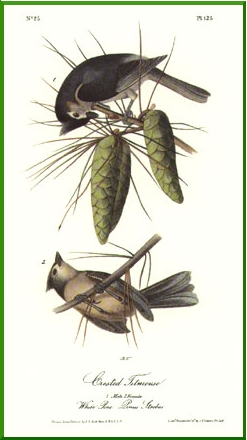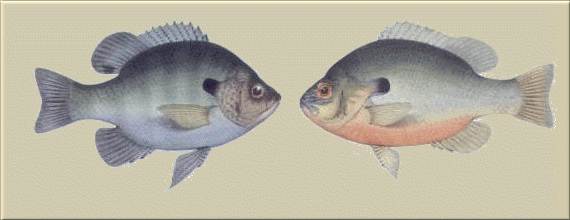
Volume 10

August, 1857 - June, 1858




I do not know how to entertain one who can't take long walks.
It is monstrous when one cares but little about trees but much about Corinthian columns, and yet this is exceedingly common.
Another, the tenth of these memorable days. We have had some fog the last two or three nights, and this forenoon it was slow to disperse, dog-day-like, but this afternoon it is warmer than yesterday. I should like it better if it were not so warm. I am glad to reach the shade of Hubbard's Grove; the coolness is refreshing. It is indeed a golden autumn. These ten days are enough to make the reputation of any climate. A tradition of these days might be handed down to posterity. They deserve a notice in history, in the history of Concord. All kinds of crudities have a chance to get ripe this year. Was there ever such an autumn? And yet there was never such a panic and hard times in the commercial world. The merchants and banks are suspending and failing all the country over, but not the sand-banks, solid and warm, and streaked with bloody blackberry vines. You may run upon them as much as you please (You cannot break them. If you should slump, 'tis to a finer sand.) -- even as the crickets do, and find their account in it. They are the stockholders in these banks, and I hear them creaking their content. You may see them on change any warm hour. In these banks too, and such as these, are my funds deposited, a fund of health and enjoyment. Their (the crickets) prosperity and happiness and, I trust, mine do not depend on whether the New York banks suspend or no. We do not rely on such slender security as the thin paper of the Suffolk bank. To put your trust in such a bank is to be swallowed up and undergo suffocation. Invest, I say, in these country banks. Let your capital be simplicity and contentment. Withered goldenrod (Solidago nemoralis) is no failure, like a broken bank, and yet in its most golden season nobody counterfeits it. Nature needs no counterfeit detector. I have no compassion for, nor sympathy with, this miserable state of things. Banks built of granite, after some Grecian or Roman style, with their porticoes and safes of iron, are not so permanent, and cannot give me so good security for capital invested in them, as the heads of withered hardhack in the meadow. I do not suspect the solvency of these. I know who is their president and cashier.
I had gone but little way on the old Carlisle road when I saw Brooks Clark, who is now about eighty and bent like a bow, hastening along the road, barefooted, as usual, with an axe in his hand; was in haste perhaps on account of the cold wind on his bare feet. It is he who took the Centinel so long. When he got up to me, I saw that beside the axe in one hand, he had his shoes in the other, filled with knurly apples and a dead robin. He stopped and talked with me a few moments; said that we had a noble autumn and might now expect some cold weather. I asked if he had found the robin dead. No, he said, he found it with its wing broken and killed it. He also added that he had found some apples in the woods, and as he hadn't anything to carry them in, he put 'em in his shoes. They were queer looking trays to carry fruit in. How many he got in along toward the toes, I don't know. I noticed, too, that his pockets were stuffed with them. His old tattered frock coat was hanging in strips about the skirts, as were his pantaloons about his naked feet. He appeared to have been out on a scout this gust afternoon, to see what he could find, as the youngest boy might. It pleased me to see this cheery old man, with such a feeble hold on life, bent almost double, thus enjoying the evening of his days. Far be it from me to call it avarice or penury, this childlike delight in finding something in the woods or fields and carrying it home in the October evening, as a trophy to be added to his winter's store. Oh, no; he was happy to be Nature's pensioner still, and bird-like to pick up his living. Better his robin than your turkey, his shoes full of apples than your barrels full; they will be sweeter and suggest a better tale. He can afford to tell how he got them, and we to listen. There is an old wife too, at home, to share them and hear how they were obtained. Like an old squirrel shuffling to his hole with his nut. Far less pleasing to me the loaded wain, more suggestive of avarice and of spiritual penury.
Is not the poet to write his own biography? Is there any other work for him but a good journal? We do not wish to know how his imaginary hero, but how he, the actual hero, lived from day to day.

There is scarcely a square rod of sand exposed, in this neighborhood, but you may find on it the stone arrowheads of an extinct race. Far back as that time seems when men went armed with bows and pointed stones here, yet so numerous are the signs of it. The finer particles of sand are blown away and the arrowhead remains. The race is as clean gone -- from here -- as this sand is clean swept by the wind. Such are our antiquities. These were our predecessors. Why then, make so great ado about the Roman and the Greek, and neglect the Indian? We need not wander off with boys in our imaginations to Juan Fernandez, to wonder at footprints in the sand there. Here is a print still more significant at our doors, the print of a race that has preceded us, and this the little symbol that Nature has transmitted to us. Yes, this arrow-headed character is probably more significant than any other, and to my mind it has not been deciphered. Men should not go to New Zealand to write or think of Greece and Rome, nor more to New England. New earths, new themes, expect us. Celebrate not the Garden of Eden, but your own.
I find my account in this long-continued monotonous labor of picking chestnuts all the afternoon, brushing the leaves aside without looking up, absorbed in that, and forgetting better things awhile. My eye is educated to discover anything on the ground, as chestnuts, etc. It is probably wholesomer to look at the ground much than at the heavens. As I go stooping and brushing the leaves aside by the hour, I am not thinking of chestnuts merely, but I find myself humming a thought of more significance. This occupation affords a certain broad pause and opportunity to start again afterward -- turn over a new leaf.
I am amused to see that Varro tells us that the Latin e represents the vowel sound in the bleat of a sheep (Bee). If he had said in any word pronounced by the Romans we should not be the wiser, but we do not doubt that sheep bleat today as they did then.
We see mankind generally either (from ignorance or avarice) toiling too hard and becoming mere machines in order to acquire wealth or perhaps inheriting it or getting it by other accident, having recourse, for relaxation after excessive toil or as a mere relief to their idle ennui, to artificial amusements, rarely elevating and often debasing. I think that men generally are mistaken with regard to amusements. Every one who deserves to be regarded as higher than the brute may be supposed to have an earnest purpose, to accomplish which is the object of his existence, and this is at once his work and his supremest pleasure.
Ah my friends, I know you better than you think, and love you better too. The day after never, we will have an explanation.

The man who is often thinking that it is better to be someplace else than where he is excommunicates himself.
Some poets have said that writing poetry was for youths only, but not so. In that fervid and excitable season we only get the impulse which is to carry us onward in our future career. Ideals are then exhibited to us distinctly which all our lives after we may aim but not attain. The mere vision is little compared with the steady corresponding endeavor thitherward. ... We are shown fair scenes in order that we may be tempted to inhabit them, and not simply tell what we have seen.
I would rather sit at this table with the sweet-fern twigs between me and the sun than at the king's.
I cannot conceive of any life which deserves the name, unless there is a tender relation to Nature. This it is which makes winters warm, and supplies society in the desert and wilderness. Unless Nature sympathizes with us and speaks to us, as it were, the most fertile and blooming regions are barren and dreary.
You conquer fate by thought. If you think the fatal thought of men and institutions, you need never pull the trigger. The consequences of thinking inevitably follow. There is no more Herculean task than to think a thought about this life and then get it expressed.
















